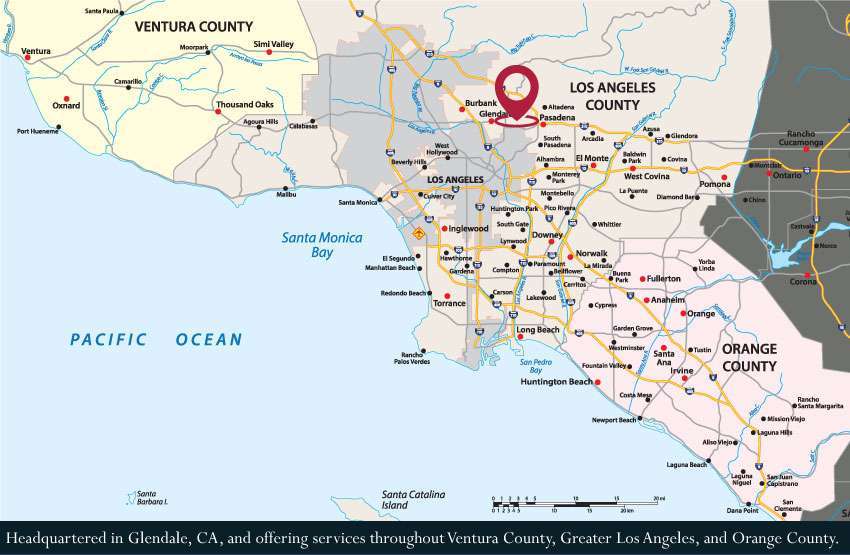The Cost of Downtime
September 21, 2023The Cost of Downtime
September 21, 2023Choosing the Right Managed IT Provider for Your Business
In today's technology-driven world, businesses rely on IT infrastructure to operate efficiently, stay secure, and remain competitive. But managing IT internally can be overwhelming, costly, and resource-intensive—especially for small and mid-sized businesses (SMBs). This is where a Managed IT Service Provider (MSP) comes in.
However, not all MSPs are created equal. The right provider can optimize your IT operations, enhance security, and support business growth. The wrong one can lead to inefficiencies, security vulnerabilities, and wasted resources.
So, how do you choose the best Managed IT Provider for your business? In this guide, we’ll cover:
- ✅ What an MSP does
- ✅ Key factors to consider when choosing an MSP
- ✅ Questions to ask potential providers
- ✅ Red flags to watch out for
What Does a Managed IT Provider Do?
A Managed IT Service Provider (MSP) is an outsourced IT company that handles a range of services, including:
- Proactive IT Monitoring & Maintenance – Ensures smooth system performance, prevents downtime, and applies security patches.
- Help Desk & Support – Provides 24/7 troubleshooting and user support.
- Cybersecurity Protection – Implements firewalls, antivirus, threat detection, and compliance measures.
- Cloud & Data Management – Manages cloud infrastructure, backups, and disaster recovery solutions.
- Strategic IT Consulting – Helps businesses align IT with growth goals and future-proof technology investments.
- Compliance & Risk Management – Ensures IT systems meet industry regulations like HIPAA, GDPR, PCI DSS, etc.
A great MSP should function as a trusted technology partner, not just a service provider.
Key Factors to Consider When Choosing an MSP
When evaluating potential Managed IT providers, look for these key factors:
1. Industry Experience & Specialization
Not all IT providers have expertise in your industry. Choose an MSP with experience in your field, as they’ll understand your unique challenges, compliance requirements, and workflows.
2. Service Offerings & Scalability
Your business needs will evolve over time, so your MSP should provide scalable solutions that grow with you. Ensure they offer:
- ✅ Cloud services (Azure, AWS, Google Cloud)
- ✅ Cybersecurity protection (firewalls, endpoint security, SOC services)
- ✅ Disaster recovery & backup solutions
- ✅ Remote & on-site IT support
3. Proactive vs. Reactive Approach
A high-quality MSP prevents IT issues before they happen rather than just fixing them when they arise.
- Proactive MSP: Offers 24/7 monitoring, predictive analytics, automated updates, and regular risk assessments.
- Reactive MSP: Only steps in when something breaks—leading to more downtime and higher costs.
4. Cybersecurity & Compliance Expertise
With cyberattacks on the rise, a strong security posture is non-negotiable. Ensure your MSP offers:
- ✅ Next-gen firewalls & endpoint protection
- ✅ Multi-factor authentication (MFA) implementation
- ✅ Regular security audits & vulnerability assessments
- ✅ Regulatory compliance management (HIPAA, GDPR, CMMC, ISO 27001, etc.)
5. Response Time & Support Availability
- Look for 24/7/365 support with fast response times.
- Ensure they have a dedicated help desk and emergency on-site support.
- Ask about their SLA (Service Level Agreement), which guarantees response times.
6. Pricing Model & Transparency
MSPs offer different pricing models:
- Flat-rate, all-inclusive (Best for predictability)
- Per-user or per-device pricing
- Pay-as-you-go (Reactive model, less ideal for long-term growth)
Ensure the pricing structure is clear, predictable, and free of hidden fees.
7. Disaster Recovery & Business Continuity Planning
- ✅ Regular automated backups (cloud & on-prem)
- ✅ Disaster recovery plans with rapid failover solutions
- ✅ RTO & RPO guarantees (Recovery Time Objective & Recovery Point Objective)
8. Client Reviews & Testimonials
Check Google reviews, testimonials, and case studies to see real-world performance. A reputable MSP should have:
- Long-term client relationships (not frequent client turnover).
- Positive testimonials from businesses in your industry.
- A proven track record of solving IT challenges.
Questions to Ask Potential Managed IT Providers
Before signing a contract, ask these critical questions:
- ✔ What security measures do you have in place to protect against cyber threats?
- ✔ How do you handle compliance requirements for industries like healthcare, finance, and retail?
- ✔ Do you offer 24/7 monitoring and incident response?
- ✔ What’s your guaranteed response time for critical IT issues?
- ✔ What’s included in your service package, and what incurs additional costs?
- ✔ Do you offer flexible contract terms?
Red Flags to Watch Out For
- 🚩 No clear SLA – If an MSP can’t guarantee response times, it’s a risk.
- 🚩 Limited cybersecurity focus – If they don’t emphasize security, your business is vulnerable.
- 🚩 One-size-fits-all approach – Your IT needs are unique; an MSP should customize solutions.
- 🚩 Lack of transparency in pricing – Hidden fees and unexpected costs are a warning sign.
- 🚩 Poor customer support reviews

